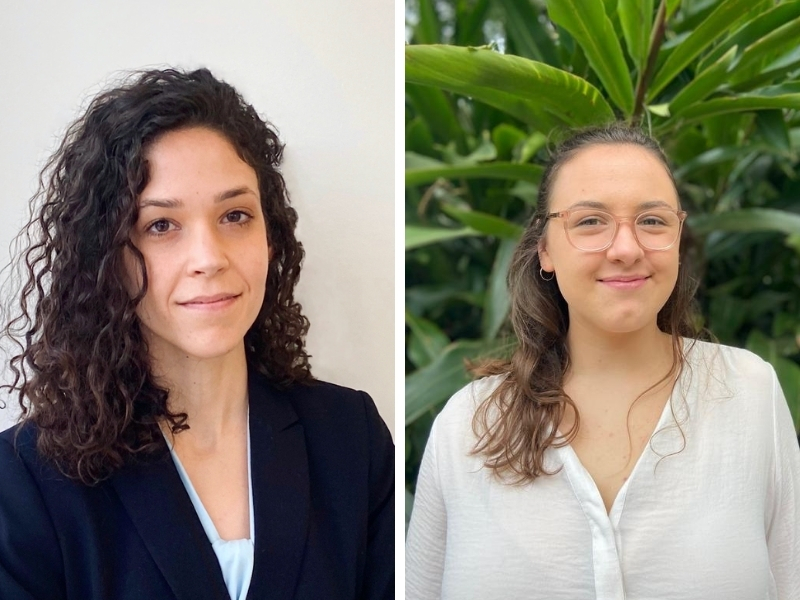
Photo of Sarah Hermans, MD/MPH Candidate and and Bridget Dixon, MPH Candidate
August 6, 2020 – The School of Public Health and Tropical Medicine faculty, staff, students, and alumni are working on the front lines of the COVID-19 outbreak. We have asked any affiliates with our school to share their experiences and stories. This story comes from Sarah Hermans and Bridget Dixon:
Sarah Perou Hermans, MD/MPH Candidate, Class of 2021, and Bridget Dixon, MPH Candidate, Class of 2021 have been collaborating with the DePaul Community Health Center network investigating how the mental health of patients has been impacted by the COVID-19 pandemic, and to assess related health disparities and social determinants of health.
Research has shown that the impacts of COVID-19 are not equivalent across all communities. Burden and health equity are influenced by social determinants of health such as neighborhood environment, housing, food access, support systems, and economic stability. Sarah and Bridget are working with Dr. Katherine Mills and DePaul Community Health Centers to better understand how COVID-19 exacerbates social determinants of health and how COVID-19 has impacted community mental health.
This project consists of contacting a randomized sample of patients from DePaul Community Health Centers and conducting a phone survey to assess how patients have been affected by COVID-19. Sarah conducted a literature review regarding standardized mental health surveillance tools, groups vulnerable to adverse mental health outcomes post-disaster, social determinants of health related to COVID-19, and the mental health impacts of quarantine and stay at home orders. She assisted with the design, editing, and programming of a survey/questionnaire, as well as the development of a protocol, and IRB submission. Bridget and Sarah will next begin administering phone surveys in early August.
Their research aims to identify participants in need and connect them with resources at DePaul, and to better understand the characteristics of individuals whose wellbeing and mental health may be disproportionally affected by COVID-19 and assist with future public health efforts and outreach.
